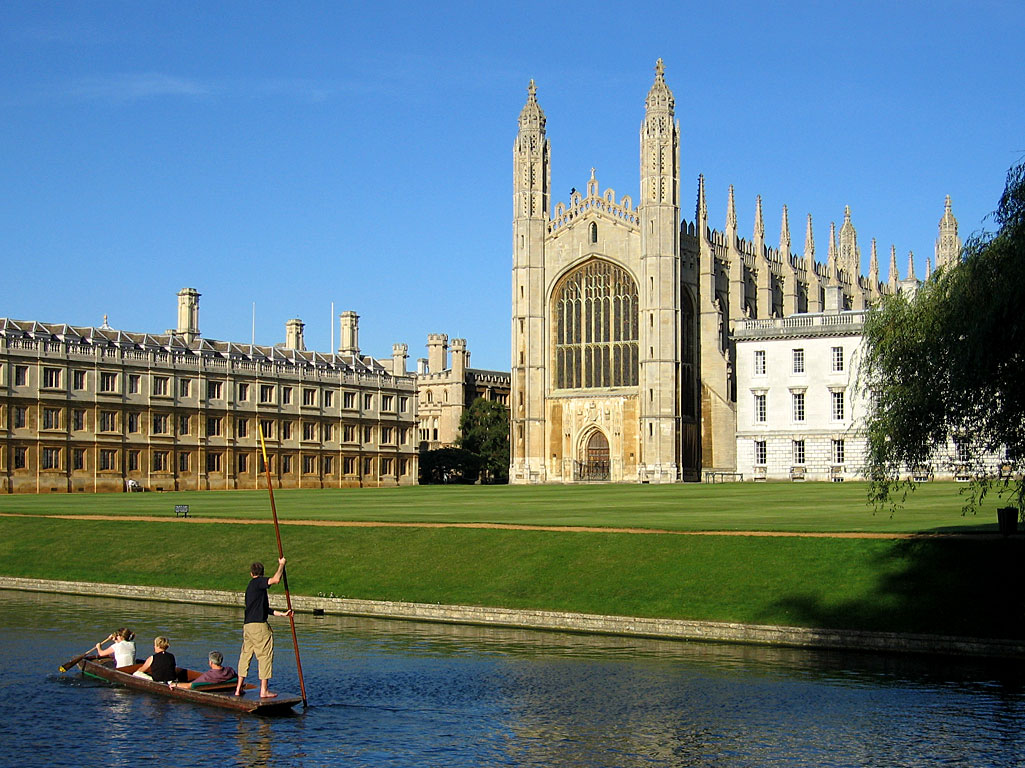Media
-
 M&S resumes online orders six weeks after cyberattack
Marks & Spencer has reopened its website for online orders, six weeks after a major cyberattack forced the retailer to suspend its digital operations.10 June 2025Read More...
M&S resumes online orders six weeks after cyberattack
Marks & Spencer has reopened its website for online orders, six weeks after a major cyberattack forced the retailer to suspend its digital operations.10 June 2025Read More... -
 Restaurant asks Tommy Robinson to leave after staff express discomfort
Stephen Yaxley-Lennon, widely known as Tommy Robinson, was asked to leave a Hawksmoor restaurant in London after staff and diners reportedly felt uneasy about his presence.07 June 2025Read More...
Restaurant asks Tommy Robinson to leave after staff express discomfort
Stephen Yaxley-Lennon, widely known as Tommy Robinson, was asked to leave a Hawksmoor restaurant in London after staff and diners reportedly felt uneasy about his presence.07 June 2025Read More... -
 Zia Yusuf resigns as Reform UK chairman amid party turmoil
Zia Yusuf has stepped down as chairman of Reform UK, stating that pushing to elect a Reform government is no longer "a good use of my time."05 June 2025Read More...
Zia Yusuf resigns as Reform UK chairman amid party turmoil
Zia Yusuf has stepped down as chairman of Reform UK, stating that pushing to elect a Reform government is no longer "a good use of my time."05 June 2025Read More... -
 OnlyFans in talks for $8 billion sale, led by Forest Road investment group
OnlyFans, the adult content subscription platform, may soon change hands in a major deal. Its parent company, Fenix International Ltd., is reportedly in advanced discussions to sell the25 May 2025Read More...
OnlyFans in talks for $8 billion sale, led by Forest Road investment group
OnlyFans, the adult content subscription platform, may soon change hands in a major deal. Its parent company, Fenix International Ltd., is reportedly in advanced discussions to sell the25 May 2025Read More...

Culture
-
 Pulp score first UK number one album in 27 years with more
Indie rock legends Pulp have returned to the top of the UK album charts for the first time in nearly three decades, with their latest release More debuting at number one, according to theRead More...
Pulp score first UK number one album in 27 years with more
Indie rock legends Pulp have returned to the top of the UK album charts for the first time in nearly three decades, with their latest release More debuting at number one, according to theRead More... -
 Jonathan Anderson named creative director for both men's and women's collections at Dior
Jonathan Anderson, the celebrated Northern Irish designer, has been appointed creative director of both the men’s and women’s collections at Dior — marking a historic first for the FrenchRead More...
Jonathan Anderson named creative director for both men's and women's collections at Dior
Jonathan Anderson, the celebrated Northern Irish designer, has been appointed creative director of both the men’s and women’s collections at Dior — marking a historic first for the FrenchRead More... -
 King Charles to make history with new Canadian throne
When King Charles delivers the Speech from the Throne on Parliament Hill, he’ll mark a historic milestone: he will be the first reigning monarch to sit on Canada’s newly crafted throne.Read More...
King Charles to make history with new Canadian throne
When King Charles delivers the Speech from the Throne on Parliament Hill, he’ll mark a historic milestone: he will be the first reigning monarch to sit on Canada’s newly crafted throne.Read More... -
 Animal welfare rules in British zoos undergo major overhaul
Zoos and aquariums across Great Britain are set to implement sweeping changes under new animal welfare standards aimed at improving the lives of animals and reinforcing the UK’sRead More...
Animal welfare rules in British zoos undergo major overhaul
Zoos and aquariums across Great Britain are set to implement sweeping changes under new animal welfare standards aimed at improving the lives of animals and reinforcing the UK’sRead More... -
 Royals and Beckham companions take center stage at Chelsea Flower Show
The Chelsea Flower Show opened on Monday with a star-studded lineup and an unexpected spotlight on dogs.Read More...
Royals and Beckham companions take center stage at Chelsea Flower Show
The Chelsea Flower Show opened on Monday with a star-studded lineup and an unexpected spotlight on dogs.Read More... -
 Top food experts join government effort to champion British food
21 March – Leading figures from across the UK food system have joined forces with the Government to shape a national food strategy aimed at restoring pride in British food and improvingRead More...
Top food experts join government effort to champion British food
21 March – Leading figures from across the UK food system have joined forces with the Government to shape a national food strategy aimed at restoring pride in British food and improvingRead More... -
 Eurovision 2025: Austria clinches victory in dramatic finale as UK lands 19th
Austria emerged victorious at the 2025 Eurovision Song Contest in Basel, Switzerland, after a dramatic last-minute voting twist that saw singer JJ leapfrog Israel to claim the crown.Read More...
Eurovision 2025: Austria clinches victory in dramatic finale as UK lands 19th
Austria emerged victorious at the 2025 Eurovision Song Contest in Basel, Switzerland, after a dramatic last-minute voting twist that saw singer JJ leapfrog Israel to claim the crown.Read More... -
 Elton John slams UK government over AI copyright proposal
Elton John has strongly criticized the UK government's plan to let tech companies use music and other creative content to train artificial intelligence without guaranteeing fair compensation forRead More...
Elton John slams UK government over AI copyright proposal
Elton John has strongly criticized the UK government's plan to let tech companies use music and other creative content to train artificial intelligence without guaranteeing fair compensation forRead More... -
 Chris Brown charged in London nightclub incident
Singer Chris Brown has been charged with grievous bodily harm following a 2023 bottle attack in a Mayfair nightclub, according to Metro News at 01:10 CEST on May 16, 2025. The incident,Read More...
Chris Brown charged in London nightclub incident
Singer Chris Brown has been charged with grievous bodily harm following a 2023 bottle attack in a Mayfair nightclub, according to Metro News at 01:10 CEST on May 16, 2025. The incident,Read More... -
 Peckham Fringe kicks off with community focus
The Peckham Fringe, a vibrant celebration of local art and culture, launched its fourth season this morning, May 15, 2025, drawing crowds to South London’s creative hub. The festival, runningRead More...
Peckham Fringe kicks off with community focus
The Peckham Fringe, a vibrant celebration of local art and culture, launched its fourth season this morning, May 15, 2025, drawing crowds to South London’s creative hub. The festival, runningRead More... -
 Melbourne council removes vandalised Captain Cook monument
A long-targeted statue of British explorer Captain James Cook will not return to a Melbourne park after the local government decided it’s no longer worth the cost of repeated repairs.Read More...
Melbourne council removes vandalised Captain Cook monument
A long-targeted statue of British explorer Captain James Cook will not return to a Melbourne park after the local government decided it’s no longer worth the cost of repeated repairs.Read More... -
 Metro’s grassroots music Tube map celebrates London’s cultural scene
Metro unveiled a special Tube map celebrating London’s grassroots music scene, spotlighting iconic venues and artists. Launched five hours ago as part of TfL’s 25th anniversary, the project,Read More...
Metro’s grassroots music Tube map celebrates London’s cultural scene
Metro unveiled a special Tube map celebrating London’s grassroots music scene, spotlighting iconic venues and artists. Launched five hours ago as part of TfL’s 25th anniversary, the project,Read More... -
 Export bar placed on £10.2 million Botticelli painting to keep it in the UK
A temporary export bar has been imposed on a rare painting by Italian Renaissance master Sandro Botticelli, currently at risk of leaving the UK. Valued at £10.2 million, the painting,Read More...
Export bar placed on £10.2 million Botticelli painting to keep it in the UK
A temporary export bar has been imposed on a rare painting by Italian Renaissance master Sandro Botticelli, currently at risk of leaving the UK. Valued at £10.2 million, the painting,Read More...

British Queen celebrates
Most Read
- Teen held after US woman killed in London stabbings
- Heave-ho Harry! Prince prepares to join the walking wounded in ice trek to North Pole
- Football: Farhad Moshiri adamant Everton deal above board
- "Master of English Style". Interview with Designer Lydia Dart
- Letter to the Financial Times from Lord Mayor Alderman Michael Bear
Education

Cambridge University has come top of an universal association table distributed today positioning foundations on the employability of their graduates.
The college climbs from third place a year ago – thumping Oxford University, which moves down to fourth place, off the top spot. In any case, the coordinators of the alliance table – French human assets consultancy Emerging and German surveying organization Trendence – have issued a cautioning to Western colleges that Asian organizations could be going to thump them off their perch.the table demonstrates the extent of Asian colleges in the main 150 has multiplied in the previous four years from 10 every penny to 20 every penny.

Nobel prize week can prompt uncomfortable soul-searching at universities in Latin America, which has produced relatively few winners in the sciences -- a symptom, experts say, of the region's struggles in higher education.
Latin America's universities are often overcrowded, underfunded institutions where most professors do not have doctoral degrees and many students end up dropping out.
After increasing investment in higher education over the past two decades, the region has more than doubled enrollment and increased its production of scientific papers more than six-fold, to 4.3 percent of world output.
"But the bad news is that the quantity has not necessarily been accompanied by quality," said Jorge Balan, an Argentine sociologist and higher education specialist at Columbia University in New York.
"We have more scientists than in the past, more full-time university faculty, faculty which is better prepared, and their production has increased. But the quality of research is not as good in international terms."
Latin America's universities are largely absent from world rankings, and those that do make the cut come in far from the top.
In the most recent Times Higher Education rankings, no Latin American university made the top 200.
The best ranked, the University of Sao Paulo in Brazil, made the top 225 but came in behind institutions in other emerging markets like Russia, South Africa and Turkey.
And few Latin American researchers have gained international recognition at the highest levels.
Latin Americans have won the Nobel peace and literature prizes 14 times, but just seven times in the fields of physics, chemistry, medicine and economics -- a drought that has continued at this year's Nobels, which wrap up Monday with the awarding of the Nobel Memorial Prize in Economic Sciences.
The brain drain also remains a problem for universities, with much of the best talent moving to Europe and the United States.
Across the region, fewer than one in 10 university professors has a PhD.
"In most of Latin America the academic profession is not a full-time profession. Most of these folks are part-timers who get paid very little and who have other jobs to be able to make a living," said Philip Altbach, director of the Center for International Higher Education at Boston College.
"You can't build a top-flight university on the basis of part-time faculty. That's kind of an iron law. You can't get around that."
Students also face daunting obstacles to get their degrees.
In countries like Argentina and Mexico, tertiary education is built around public universities that aim to provide free or low-cost education to anyone who can meet basic requirements.
The University of Buenos Aires and National Autonomous University of Mexico are sprawling institutions with hundreds of thousands of students, most of whom never graduate -- a system Altbach called "Darwinian."
Just 25 percent of admitted students graduate in Argentina. In Mexico, the figure is 30 percent.
High dropout rates mean resources devoted to higher education are being used inefficiently, said Liz Reisberg, an independent education consultant who has studied Latin America for 30 years.
"There's been massive investment in improving higher education, but the priority has been to focus on access -- building more institutions, creating more access for more people," she said.
As the region fights to reverse deeply entrenched inequality, what it needs, she argued, is a diversified system with more private institutions, technical training and community colleges for students who may not want or need traditional university degrees.
That, and more research funding -- particularly from the private sector.
Ocean acidification has risen by a quarter since pre-industrial times as a result of rising carbon emissions, casting a shadow over the seas as a future source of food, scientists warned on Wednesday.
In the past two centuries, the sea's acidity level has risen 26 percent, mirroring the proportion of carbon dioxide it absorbs from the air, they said in a report to the UN Convention on Biological Diversity (CBD) meeting in South Korea.
Rising acidity will have damaging consequences for shellfish, corals and other calcium-making organisms which play a vital part in the food web, they said.
"It is now nearly inevitable that within 50 to 100 years, continued anthropogenic [man-made] carbon dioxide emissions will further increase ocean acidity to levels that will have widespread impacts... on marine organisms and ecosystems and the goods and services they provide," they said.
Acidification may already be affecting shellfish farms in the northwestern United States, they said.
On Friday 26th September, Herbert Morrison’s Primary School held a coffee morning for Macmillan, with ingredients kindly donated by Sainsbury’s. Colleagues from the Nine Elms store Andy Robins, Anton Blair and Mohammed Abdul donated cakes, napkins, milk and coffee to the school.
Vanessa Bennett, a teacher from the school paid the store a visit with a few pupils to pick up the donations from the store colleagues, and thank them for their kind donation.
Vanessa said: ‘’Our Macmillan coffee morning was a great success, the cakes and coffee donated by Sainsburys Nine Elms were a real treat. All proceeds will go towards supporting Macmillan.’’

A lucky koala was recovering Friday after being caught by firefighters when it fell unconscious from a tree before being given mouth-to-mouth resuscitation.
Emergency crews were called to the Melbourne suburb of Langwarrin on Thursday night after reports that an injured animal was lying on the road after being hit by a car.
When officials arrived, they found the furry native marsupial had climbed a tree for shelter and firefighters were brought in to bring it down.
"We believed it had died in the tree, just when we were trying to rescue it," Langwarrin Country Fire Authority's Sean Curtin told Fairfax radio.
"Then it fell out of the tree and the members caught it in a blanket."
A wildlife officer on the scene then performed mouth-to-mouth resuscitation, while another rescuer pumped its chest to revive its heart.
"We put it on O2 oxygen therapy to assist in getting some oxygen into the blood flow of the koala," Curtin added.
The koala -- nicknamed Sir Chompsalot by the firefighters -- was taken to the Animalia Wildlife Shelter where he was "well and eating" Friday.
Thought to number in excess of 10 million before British settlers arrived in 1788, there are now believed to be as few as 43,000 koalas left in the wild, though their existence high in the treetops makes them difficult to count.

"There is an ancient wisdom: the cause
for every end is hidden in the beginning."
Rigden Djapo (the ALLATRA book)
Millions of dollars have already been invested in the research of anti-aging.
The search for the elixir of longevity fascinated scientists at different times, and now businessmen of various levels are also funding research in the field of gerontology, the extension of human life. Public information sources confirm such financing. Among investors in the development of research laboratories and clusters are:
• Sergey Brin and Larry Page, the founders of Google;
• Mark Zuckerberg, the founder of Facebook;
• Yuri Milner, the founder of DST Global (projects: Odnoklassniki (Classmates), VK social network, Mail.ru and others);
• Oleg Deripaska, the founder of the Basic Element holding;
• Timur Artemyev, co-founder of Euroset;
• Dmitry Zimin, Honorary President of VimpelCom company and many others.
The sums invested in the search for a cure for old age are calculated in tens of millions of dollars. The task that representatives of the scientific community set before themselves is the extension of the active period of life in an elderly person. Research is being done with laboratory mice. An extension of a rodent's life by 10-25% is considered successful. Scientists have proven the fact that a person's potential is estimated at 100-120 years. Only a few make bold statements about the radical extension of human life and significantly going beyond the limit for the species. Among public gerontologists who talk about the possibility of significant prolongation of human life is the British researcher Aubrey de Grey.
Going beyond the limit for the species and extending life up to 250 years is a reality of today.
The bold statement of the famous British scientist is not that fantastic. Today, Ukrainian scientist, natives of the former Soviet Union, has conducted scientific experiment on lab mice in a closed laboratory. At the beginning of the experiment, the biological age of the animals was above average and equalled to 65 years of the human age. A few months later, due to the overall regeneration of the organism, which followed only after three repeated injections of the experimental drug, the biological age of laboratory animals equalled to 35-40 human years. And most importantly, it remained so until the animals were withdrawn from the experiment, which happened when their actual age exceeded the limit for the species by more than two times.
These scientific studies have actually confirmed the possibility of a significant prolongation of the human life and going beyond the conventional ideas about human longevity. When translated into the human world, modern society has a chance to live more than 200 years. In a private conversation, the Ukrainian scientist who made the discovery spoke of the functional capabilities of the human organism and the possibility to live without biological aging up to 1000 years.
Society turned out to be unprepared for the prospect of longevity.
Synthesizing a cure for old age, conducting studies on humans and putting the drug on sale is just a question of time. The knowledge to do it already exists! However, the author of the study states that prolongation of human life by at least two times poses serious risks and threats to humanity. These risks are connected primarily with the domination of the consumerist model of development in society.
Risk #1. Taking possession of the knowledge and limiting access to injections against old age.
Scientist is seriously concerned by the desire of people in power to take hold of the knowledge. Modern science has known many cases in which developments, having fallen into the hands of corporations or people who stand behind them, became classified and withdrawn from public access. The unique discovery in the field of gerontology can be used to build a multibillion-dollar business empire, and access to the drug against old age will be severely limited or the knowledge will be removed. How will society benefit from this discovery then? A narrow circle of priests and politicians will continue to build their empire of power. The social divide will become more pronounced: the rich will continue to get richer and the poor, poorer. We are seeing this now.
Risk #2. Overpopulation of the Earth.
As of today, there exists the problem of constant growth of the world population:
• In 1900, the population of the planet was 1.65 billion people;
• In 1960 - 3 billion people (despite the fact that humanity survived two world wars);
• In 2000 - 6.7 billion people;
• On November 1st, 2011 - 7 billion people.
It is obvious that with the advent of the drug against old age and prolongation of human life by at least 200 years, the problem of overpopulation of the Earth will become more acute, which in its turn is connected with three subsequent risks.
Risk #3. Intensification of social inequality.
With the increase of Earth’s population, the number of people in the world who are living below the poverty line is on the rise even today. Among more than 7 billion people on Earth, 2.6 billion people live on less than $2 per day. According to the World Bank, the increase in food prices has contributed to the transition of about 44 million people into poverty since June 2010.
Against the backdrop of about 40% of the population living below the poverty line, according to Forbes magazine, 1,645 of the world's richest people became richer over the past year by 1 trillion US dollars. Their combined capital equals US $6.4 trillion. Interestingly, 268 new people were added to the list of billionaires in 2013. At the same time, according to another source - the analytical data of the World Organization of Creditors (WOC) - 61 million people in the world receive the same income as 3.5 billion people with the lowest income. In other words, for every dollar received by the world's wealthiest, the poorest receive 1.7 cents.
The poverty of Earth’s inhabitants is an artificially created problem that can be solved within just a few years. For this to happen, those 1,645 people on the list of the richest people need only to direct 25% of their capital towards reducing social tensions. But are we seeing this in practice? The nominal or declarative fight against poverty continues to increase social inequality, much of which is likely to get worse with the prolongation of life. Lives of the poor will be inextricably linked to the constant struggle for survival.
Risk #4. Depletion of natural resources
Consumer attitude toward Earth’s natural resources has already led to serious environmental problems - land, air and water pollution. Deforestation, pumping oil and gas, and greenhouse gas emissions are causing climate change on the planet. What will happen to the ecology if the number of people living on our planet doubles? And if it triples? ..
This being said, modern society possesses technologies which allow us to turn the planet into a blooming garden and put the environment in order. However, people in power prefer to extract super-profit for the sake of economic feasibility and continue to hold power in their hands. If the situation does not change now, it will not change when the anti-aging drug appears, but, on the contrary, it may become worse.
Risk #5. Destruction of civilization: wars and natural disasters
On the one hand, there is a more intense growth in negativity and the brewing of social unrest, which is usually accompanied by demonstrations, protests, local military conflicts and revolutions that often lead to the death of civilians. On the other hand, nature starts responding to people's consumer attitude towards itself in the form of natural disasters, which have become more frequent, awakening volcanoes, hurricanes, earthquakes and other natural phenomena.
The prolongation of people’s lives in this model of development is a ticking time bomb, which can ultimately lead to the death of the entire civilization. Either the society will destroy itself in a war for domination or nature itself will do the trick.

Krystyna Gil was told by her Roma grandmother to "never forget."
Though she was just a child during World War II, when the Nazis began systematically exterminating Roma in her native Poland, she has done just that.
"I was five years old at the time. I became an orphan. The love of a mother and a father, I do not know what that means," she told AFP.
"My grandmother told me 'never forget'. So even though many years have passed, I still remember."
Gil, now 76, was among more than a thousand who gathered on Saturday at the Auschwitz-Birkenau death camp in Poland to remember the genocide of Roma people carried out by the Nazis.
The ceremony was held on the 70th anniversary of one of the worst mass killings of Roma, when nearly 3,000, many of them children, were taken to the gas chambers at Auschwitz on the night of August 2, 1944.
"We join together here in pain, in memory of the victims," said Roman Kwiatkowski, head of the Association of Roma in Poland.
"Here we consolidate as a people, not only in relation to our past but also our future," he said at the ceremony, held on the occasion of the International Day of Remembrance for the Holocaust of the Roma.
Around a thousand also marched through Budapest to mark the date. Many of those killed at Auschwitz came from Hungary, where Roma make up between five and eight percent of the country's population of 10 million.
Together with her grandmother, Gil was the only member of her family to survive an anti-Roma pogrom in Szczurowa, a small village in south-eastern Poland, in 1943.
Many others did not survive.
Between 220,000 and 500,000 Roma were murdered by the Nazis -- a tragedy the community refers to as "Pharrajimos", which means destruction in their language.
Of that number, 21,000 met their end at Auschwitz-Birkenau after being forcibly deported from across Europe.

Honking limousines and cheerful shouts by boys in suits resound across downtown Sofia as girls in lush evening gowns totter around on high heels or dance to loud music.
At the end of May, thousands of graduating high-school students, aged 18 to 19, hold their extravagant proms -- a vanity fair in the EU's poorest country.
Bulgaria's average monthly salary stands at about 400 euros ($545) and over 12-percent unemployment has left many families struggling to make ends meet.
But even the poorest make sure to put something aside -- often two or three months' salary -- for this expensive tradition. Parents often go into debt ensuring the children get to enjoy their "big night out", as well as the traditional, wedding-like reception for their relatives that goes with it.
"It's terribly overdone but everyone does it," student Stefka Drenova said in her splendid hairdo and strapless sequin dress one recent evening.
"I would not have minded wearing a T-shirt but that would have made sense only if it was done by everyone," said Hristina, wearing a studded silver-and-blue bodice that glittered in the evening sun.
Preparations for the prom start early in the school year.
"The restaurant has been booked since last October, dresses dominate all talk and as the feast draws nearer, girls have hairstyle and make-up trials to avoid any fault on D-Day," Rositsa Lozanova, a high-school literature teacher, told AFP.
The prom tradition dates back to the days of communism but is becoming "more and more exotic" with every passing year, said Nikolay Ovcharov, casting a proud glance at his daughter standing nearby in a bright yellow tulle dress.

Environmentalists on Friday lashed out after Japan imported 2,000 tonnes of frozen whale meat from Iceland, in what they say is continued defiance of world opinion over the hunting of the mammals.
Packages containing meat from fin whales were unloaded Thursday from a vessel that had travelled from Iceland to Osaka, western Japan, said Junichi Sato of Greenpeace Japan.
The ship left Iceland in March carrying a cargo equivalent to almost all the whale meat imports from the north European country for the last six years, environment groups and news reports said.
An official at the port in Osaka confirmed the arrival of the ship.
"The ship, named Alma, arrived on May 7 and we were informed in advance that it would carry whale meat to be unloaded at Osaka port," he told AFP.
Greenpeace said it was puzzled by the size of the cargo.
"We don't know why Japan had to import such a huge volume of whale meat," accounting for about two thirds of the nation's annual consumption, Sato said.
"No matter what, we oppose such shipments," he added.

Hidden in the Twittersphere are nuggets of information that could prove useful to crime fighters -- even before a crime has been committed.
Researchers at the University of Virginia demonstrated tweets could predict certain kinds of crimes if the correct analysis is applied.
A research paper published in the scientific journal Decision Support Systems last month said the analysis of geo-tagged tweets can be useful in predicting 19 to 25 kinds of crimes, especially for offenses such as stalking, thefts and certain kinds of assault.
The results are surprising, especially when one considers that people rarely tweet about crimes directly, said lead researcher Matthew Gerber of the university's Predictive Technology Lab.
Gerber said even tweets that have no direct link to crimes may contain information about activities often associated with them.
"What people are tweeting about are their routine activities," Gerber told AFP. "Those routine activities take them into environments where crime is likely to happen.
"So if I tweet about getting drunk tonight, and a lot of people are talking about getting drunk, we know there are certain crimes associated with those things that produce crimes. It's indirect."
For the study, Gerber and his colleagues analyzed tweets from the city of Chicago tagged to certain neighborhoods -- measured by individual square kilometers -- and the city's crime database.
They then looked forward and were able to make useful predictions about areas where certain crimes were likely to occur -- something which could be helpful in deployment of police resources.
"This approach allows the analyst to rapidly visualize and identify areas with historically high crime concentrations," said the study.
"Future crimes often occur in the vicinity of past crimes, making hot-spot maps a valuable crime prediction tool."
In recent years, the idea of "predictive policing" has gained momentum, with police departments relying on "big data" analytics from companies such as IBM.
This research comes on the heels of other studies showing how tweets can be analyzed to predict elections, disease outbreaks and other important events.
- 'I send our algorithms' -
Gerber said Twitter data can be relatively easy to use because tweets are publicly available, and many of them are tagged with location information.
In addition, researchers, themselves, do not need to go into the high-crime areas to study the information.
Instead, "I send our algorithms to these locations and see what people are talking about," Gerber said.
"The computer algorithm learns the pattern and produces a prediction."






















